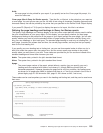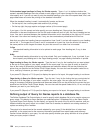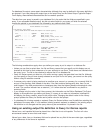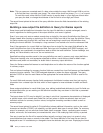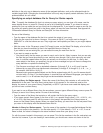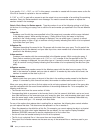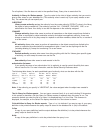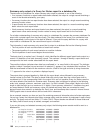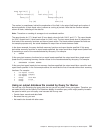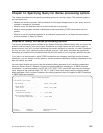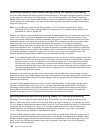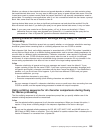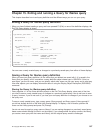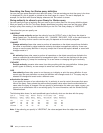Break level ID (1) | | | |
|||| ||
Overflow indicator (1) Total salary (11.2) |
|| ||
County (11) | Average salary (8.2)
||
City (10) Count (7.0)
The number in parentheses, behind the explanation of the field, is the output field length and number of
decimal positions. A blank break value is shown as a string of periods. Note that the overflow indicator
column is blank, indicating all the data fits.
Note: Truncation or rounding of averages is not considered overflow.
The report breaks for CITY (break level 2) have break values for both COUNTY and CITY. The report breaks
for COUNTY (break level 1) have break values for COUNTY only. The last record (break level 0) contains the
final totals of the summary functions and has no break values. The blanks shown between the fields are
for example purposes only; the actual database file output has no blanks between fields.
In the above example, the query had both summary functions and report breaks specified. If this query
had neither summary functions or report breaks specified, the output would be a single record (break level
0) containing a count of the records selected by the query. For example:
0 0000008
If this query had summary functions but no report breaks specified, the output would be a single record
(break level 0) containing summary function values for the records selected by the query. For example:
0 00030000000 03750000 0000008
If this query had report breaks but no summary functions specified, the output would be a record for each
report break specified. In the first example above, this would be the first six records without their summary
functions. For example:
2 Los Angeles Arcadia
2 Los Angeles Glendale
1 Los Angeles ........
2 Orange Costa Mesa
2 Orange Irvine
1 Orange ........
Using an output database file created by Query for iSeries
You can use a file containing the query data the way you do any other file on your system. Therefore, you
can select this file on the Specify File Selections display for another query which might possibly increase
the speed at which your new query runs because the file may now:
v Contain fewer records and data fields
v Be sorted the way you want
v Not need to be shared with other users
Chapter 13. Selecting output type and output form in Query for iSeries reports 161



